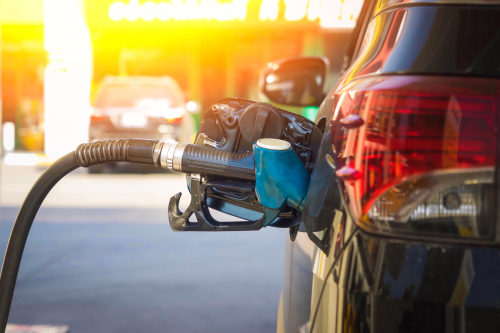The Ministry of Finance recently admitted its proposal to amend the petroleum ordinance, which would increase the petrol levy on all petroleum products to Rs. 60 per liter. This move has sparked debates and concerns among various stakeholders.
Proposed Amendment of Petrol Levy
The proposed amendment aims to raise the petroleum levy rates from the existing Rs. 50 per liter to Rs. 60 per liter. The government is targeting a collection of approximately Rs. 870 billion during the upcoming fiscal year 2023-24. However, Finance Minister Ishaq Dar has repeatedly denied any intention to increase the levy to Rs. 60 per liter, which casts uncertainty on the feasibility of achieving the collection target.
Amendment to the Petroleum Products Ordinance 1961
To overcome the current maximum tax limit of Rs. 50 per liter, the government has proposed an amendment to Section 7 of the Petroleum Products Ordinance 1961 through the Finance Bill 2023. This amendment aims to transfer the power to increase the levy from parliament to the federal cabinet, raising concerns among members of the Senate Standing Committee on Finance. Some argue that this amendment seeks to curtail the powers of parliament, leading to a broader debate on the balance of power and accountability.
Government’s Reliance on Non-tax Revenue
The proposed increase in the petroleum levy is part of the government’s plan to generate approximately Rs. 2.9 trillion in non-tax revenue for the upcoming fiscal year. With non-tax revenue not shared with provinces, the federal government is increasingly relying on these sources to fund its expenditures. As a result, petroleum prices may remain high in the next fiscal year, as the central bank has estimated an average exchange rate of Rs. 308 to a dollar.
Current Collection and Challenges
In the current fiscal year, the government aimed to collect Rs. 855 billion through the petroleum levy. However, the collection during the first nine months fell significantly short, reaching only Rs. 362 billion. The standing committee has voiced opposition to the proposed amendment, particularly due to its limited voting rights for the National Assembly.
Arguments and Justifications for Petrol Levy
The government justifies the proposed amendment by stating that it aims to obtain enabling powers to increase the levy at a suitable time. However, the Joint Secretary Budget revealed that the finance ministry is indeed proposing an increase in petrol levy to Rs. 60 per liter. This discrepancy raises questions about the government’s stance and its communication regarding the amendment.
Other Proposed Amendments
In addition to the amendment to the petroleum ordinance, the standing committee discussed other proposed changes. The insertion of a new clause in the Income Tax Ordinance was approved, empowering the Federal Board of Revenue (FBR) to recover taxes even in cases where it does not have a direct claim. This amendment aims to facilitate the recovery of wealth tax and petroleum levy arrears.
However, the committee rejected the insertion of Section 99-D, which was introduced to recover tax on windfall profits of exporters, insurance companies, oil and gas exploration companies, and banks. The decision reflects the committee’s concerns regarding the implications and fairness of this specific provision.
The proposed amendment to increase the petroleum levy has raised various concerns and sparked debates among stakeholders. The potential shift of power from parliament to the federal cabinet, coupled with the government’s reliance on non-tax revenue, adds complexity to the ongoing discussions. As the amendment progresses, it is crucial for policymakers to carefully consider the implications and address concerns raised by relevant stakeholders.


